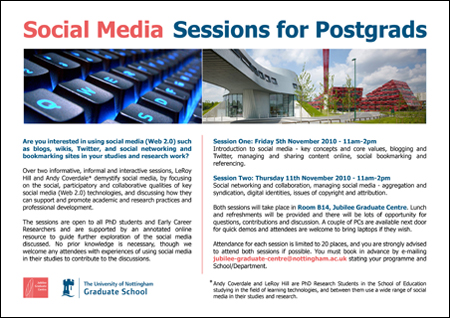The massification of Higher Education has effected a huge and seemingly irreversible shift in the custodianship of many former vocational training programmes. Recounting the pivotal moment polytechnics were given reign to assume university status and award degrees, Ilana Bet-El, writing in The Guardian, makes an impassioned plea for the sanctity of traditional university scholarship:
“The true and unchanging purpose of universities is to study, think and research: to be removed from the immediate demands and overwhelming directives of everyday life, in the so-called ivory tower, in order to better understand its logic, needs and possibilities. In this way it both enriches society and benefits state and economy.”
I studied Technical Illustration for my first degree; a highly specialised subject, requiring equally specialised studio-based and ICT-based training. At the time, Blackpool and the Fylde College was the only institution in the UK to offer it as a degree (amongst a smattering of purely vocational two-year higher diplomas elsewhere). Admittedly, the academic element of the degree was highly modular; sort of ‘tagged on’ rather than integrated into the formal programme, not least in the form of Contextual Studies, where Converse trainers-wearing John Donaldson taught us Berger, Fiske and Barthes.
I left Blackpool as a highly competent technical illustrator with computer software expertise that would be largely obsolete within a year. I also came away with an A+ dissertation on football fanzines (yes, really) and an appetite for academic study, which I was delighted to resume four years later. Whenever I’m asked what is the best thing about my experiences in Higher Education, I always refer to the opportunities I’ve had to study alongside people from other countries and cultures, and engage with people from different disciplines and with different perspectives. Whilst these conditions are not exclusive to a university environment, they form an important and integral part of the learning process and academic experience.
I appreciate not everyone is interested in academia, and that its inherent cultural inertia often inhibits attempts to justify its relevance to vocational training. But this does not mean it should, as Bet-El suggests, remain the exclusive pursuit of an elite. Regardless of whether our learning institutions are called universities, polytechnics or whatever, we should be ensuring that the increasingly wide berth of Higher Education provides flexible, transferable and inspirational pedagogies engaged in serving both academic and vocational learning needs, and attuned to inclusion and lifelong and life-wide learning contexts. I would like to think, for example, that today’s nursing students will become as technically competent and knowledgeable as their predecessors, in performing the vital medical procedures expected of them. If the more rounded education provided by an academic degree also affords them the skills and confidence to develop as independent, critical and reflective professionals, all the better.
Unfortunately, whilst I share many of Ilana Bet-El’s concerns about universities becoming ‘degree factories’, she totally misses the key point – that the migration of traditionally vocational courses to the Higher Education domain has not coincided with appropriate student funding provision. Instead she seems to be hankering for a return to the days when the top 15% are left alone to wallow in academic navel-gazing, while the rest of us get on with preparing for the real world through narrow-minded training regimes that do not allow us to think beyond the defined roles that society has deemed fit for us to pursue.




